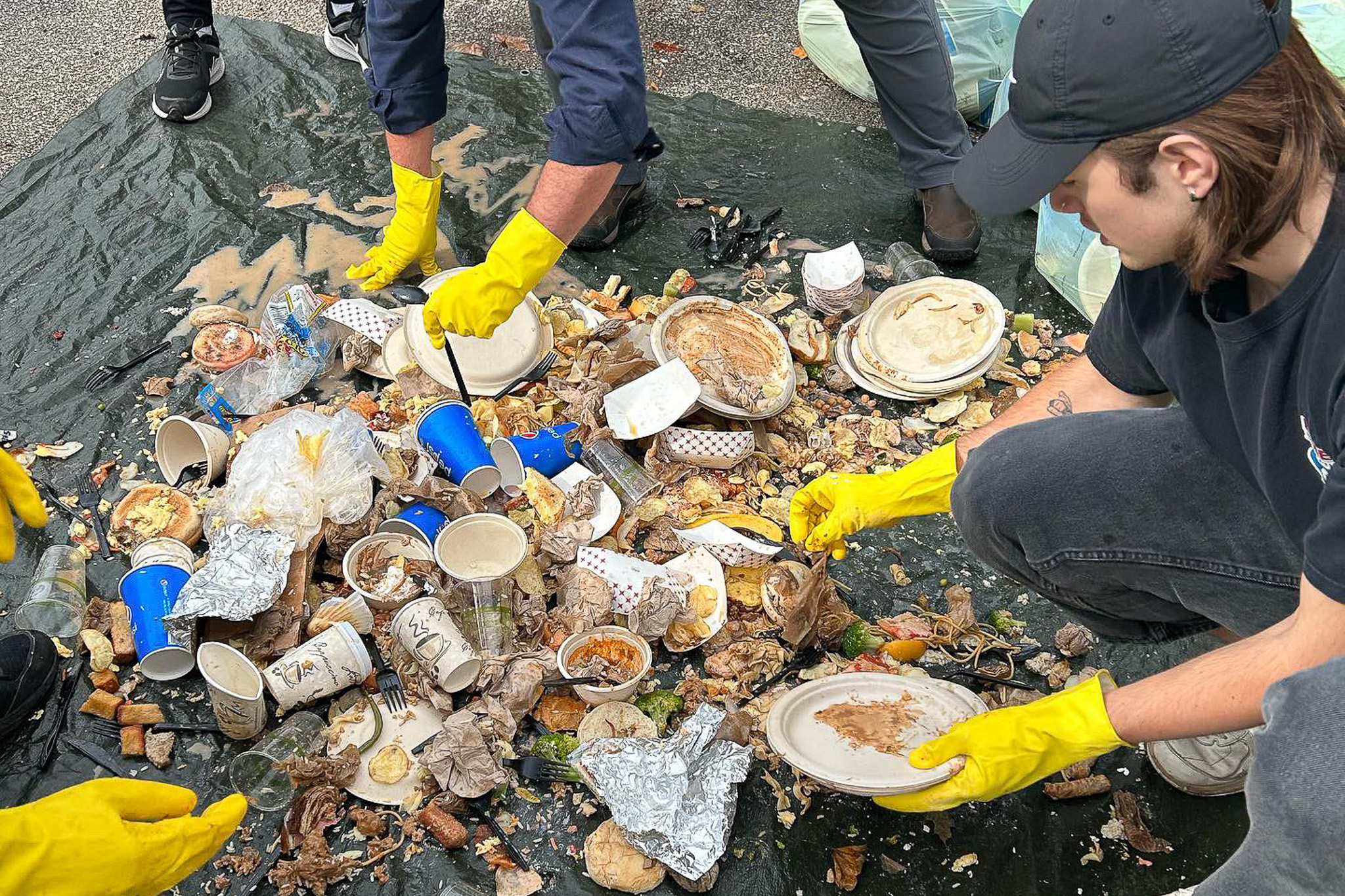Dan Barwick has been hired to fill the role of sustainability coordinator at Goshen College. Recently, the role has been held by someone with other job titles on campus.
Barwick graduated from GC in 2013 with a degree in elementary education. He returned to GC to work because of a position his partner has. “My partner teaches a graphic design class here, [so] there was a bit of jealousy that she had a role here,” Barwick said. The new position caught his eye because of the larger steps GC is taking towards sustainability. “It shows the level of dedication to sustainability that the school has — literally putting their money where their mouth is.”Barwick wants to work as “the bridge between students and staff to help get things done.” Some of his goals include a trackside garden, composting, recycling and other city-wide initiatives.
Some classes have done research on sustainability initiatives on campus, and Barwick is eager to take advantage of that work. “All this research on what we need to do was already done,” Barwick said. “Why [not] begin the process to try to implement it?”
Economics of Sustainability, taught by Jerrell Ross Richer, is one class doing that research. Ross Richer and Barwick were in conversation about sustainability on campus and decided to work on a waste audit with Maynard Miller, adult and graduate admissions counselor and member of the GC sustainability committee.
Currently, everything in the bins labeled “compost” at the Leaf Raker is going to the landfill while GC finds a way to sustainably compost the large amount of waste.
The class’s goal was to see what items were tossed into the compost bins in the dining space to find short-term solutions for food waste during the Westlawn renovation and long-term solutions for when renovations are complete. “In order to develop an effective composting strategy,” Ross Richer said, “we need to know the composition of this waste stream.”
The process involved getting post-consumer waste from the dining hall and from waste produced in the food-production process. The class calculated that in the span of 24 hours, an average of 305 pounds of waste would be produced from both food production and post-consumer waste.
In terms of other waste, “only about 35% of people are recycling their plastic utensils when eating lunch,” according to Barwick.
Ross Richer added that he was “disturbed by the amount of trash that was tossed in with the compost.”
There was an invitation posted in the communicator for students to help with the waste audit, but only students in the class attended.
Eliza Aleman, a sophomore sustainability major, got the chance to sort the waste. “It was honestly really gross,” Aleman said. “There were moments where we couldn’t tell if something was a chicken strip or a French toast stick from yesterday’s breakfast. … This was really eye-opening and made me realize the help that could come from analyzing literal waste and how we can conceptualize solutions.”
Through the process, the students have a chance to create the solutions that the college is seeking. They will present their findings and proposals to the sustainability committee in upcoming meetings.



